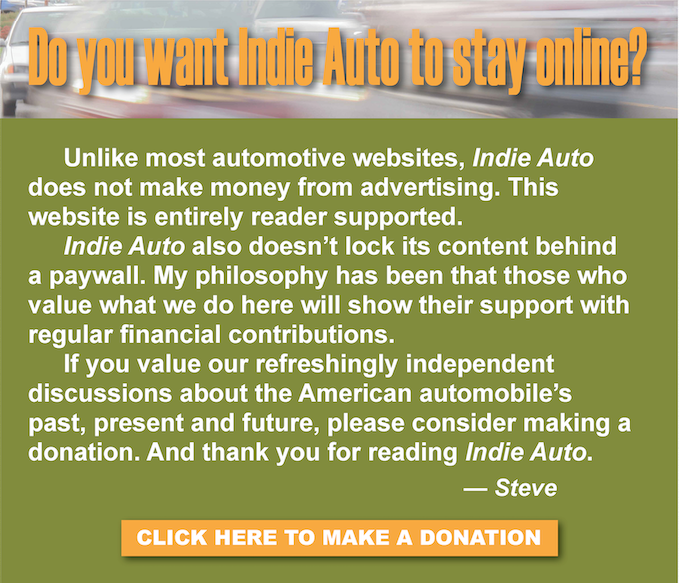
Recently I approved a comment that took issue with an Indie Auto story. Yet I have rejected a handful of other critical comments. Why?
The comment I approved was civil, on topic and grounded in facts and logic. So while I happen to disagree with its conclusion, the comment struck me as adding to the conversation in a productive way — unlike the comments I have rejected.
I bring this up to remind folks that the overarching goal of Indie Auto is to better understand why the U.S. auto industry experienced one of the most spectacular industrial collapses of the last century. Robust debate is essential to the enterprise. Indeed, my biggest criticism of the auto history media is the relative absence of public debates, particularly between historians whose published works go a long way toward defining the dominant narratives of our field.
Also see ‘Five (arguably) unresolved mysteries of postwar independent automakers’
Robust debate strikes me as being very different from rhetorical foot fights reminiscent of the Jerry Springer Show. As discussed here, I was hesitant to open up comment threads because of the increasingly nasty discussions at other auto media outlets. So as a compromise, first-time comments must be approved.
I have thus far rejected only a few comments. I don’t have time to reach out to each of these readers to tell them why, so I recently created a “Rejected Comments” page. This page can give a more concrete sense of how to meet Indie Auto’s comment guidelines. Conversely, some readers may wisely conclude that their preferred communication style would be a better fit elsewhere.

Two biggest reasons why comments have been rejected
The most common reason I have rejected a comment is for name calling. This is not just to keep the conversation civil. Disparaging language is often used as a substitute for making an argument grounded in credible facts and logic.
As a case in point, I have rejected comments when they have created straw men and then indignantly kicked them down. Perhaps the commentator failed to understand an article because they only skimmed it. Perhaps they are such a fanboy of a car brand or auto executive that they can’t deal with analytical nuance and constructive criticism. Or perhaps they enjoy psychodrama. Whatever the reason, this kind of rhetoric can derail comment threads.
Also see ‘Should auto history websites only say nice things?’
The bottom line is that the first-time comment essentially functions as an audition. I am looking for signs that the reader will make substantive contributions to our conversations. That doesn’t mean agreeing with what I or anyone else writes. It does mean displaying the skills and commitment to talk through differences of opinion in a respectful and thoughtful way.
Share your reactions to this post with a comment below or a note to the editor.







Be the first to comment